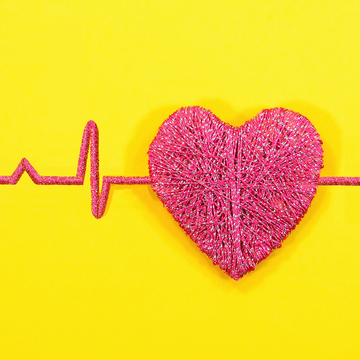I’ve never been much of a breakfast person — I don’t like to eat too soon after waking up, and I haven’t been a huge fan of traditional breakfast foods, like eggs. I was also a vegan until a year and a half ago, when I learned I had a vitamin B12 deficiency (I was unusually tired and had tingling in my hands and feet).
I tried giving myself B12 shots, but that wasn’t for me, so I started changing my diet a little bit. That has included the occasional egg (now, I eat fish and meat sometimes, too). Although I’ve learned to like eggs, I don’t typically eat them every day. So when my editor asked me to try a daily egg for two weeks, I thought it would be a fun experiment.
Every day, 27% of Americans eat eggs on their own, in an omelette, or as part of a sandwich. Over the course of a year, it's estimated that we each eat more than 280 eggs. That's good news because experts say eggs are incredibly good for you when they're part of a balanced diet: “Despite being small, they deliver a powerful nutrient package,” says Lauri Wright, Ph.D., R.D.N., director of nutrition programs and associate professor at the University of South Florida.
“Eggs are often called ‘nature’s multivitamin’ for good reason,” she says. “They’re packed with high-quality protein, which supports muscle repair and satiety, and they contain nutrients many people fall short on, like vitamin D, choline, and lutein.”
But is it healthy to eat them every day? And what happens to your body when you eat an egg every day? I was intrigued to find out.
Egg nutrition
One egg contains:
- Calories: 71
- Total fat: 5 g
- Protein: 6.24 g
- Vitamin B12: 0.5 mcg
- Vitamin D: 1.24 mcg
- Calcium: 24 mg
- Choline: 169 mg
What are the health benefits of eating eggs?
For years, eggs got a bad rap. That’s mostly because they contain saturated fat and cholesterol, and people worried about their health effects. However, recent studies have debunked the myth that eggs are linked to cardiovascular disease and eggs now appear to be neutral or slightly beneficial for lipid profiles in most healthy adults. “The old philosophy that eggs raise cholesterol has been found to be outdated,” Berjis says.
Some of the main nutrient benefits of eggs include:
- Protein: Eggs are packed with protein, which can slow digestion and curb cravings, Wright says. “Over time, that can help with appetite regulation.”
- Vitamin D: Eggs are one of just a few foods that naturally contain vitamin D, which helps you absorb calcium. The vitamin is essential for bone health, mental health, and mood.
- Choline: This is “great for brain health,” Berjis says. Choline also supports your nervous system and cell health. Most adults do not meet the recommended intake for choline, making eggs a convenient way to help reach targets.
- Vitamin B12: Two eggs give you a third of your necessary B12 for the day, Wright says. The vitamin is “essential for making red blood cells, keeping nerves healthy, and supporting energy metabolism,” she adds.
- Antioxidants: For example, the antioxidants lutein and zeaxanthin support eye health, Berjis says.
What happened when I ate eggs every day
Starting off, I made egg bites packed with spinach and other vegetables. I’d made them before and knew they freeze well, so I thought it would be convenient to have these on hand for when I felt too lazy to cook. I ate the egg bites a few times over the two-week period, usually with a slice of whole-wheat toast or a whole-wheat frozen waffle. This was a very filling combo—I never felt snacky until the next mealtime.
The same goes for a couple of other meals I enjoyed: arugula salad with a hard-boiled egg and scrambled eggs with toast. This kept me full for hours. On other days, I ate a hard-boiled egg or two as a snack.
Along with feeling fuller after meals and snacks, I seemed to have more energy. I noticed that I stopped reaching for my usual afternoon coffee. Experts say this is common when you eat eggs.
“Most people notice they stay fuller for longer thanks to the protein and healthy fats,” says Sahar Berjis, R.D., a registered dietitian and founder of Inner Health and Wellness. “Some report more steady energy throughout the day.” The stabilized energy is likely due to the B vitamins, as well as choline, which is crucial for mood, memory, and brain and nervous system function, Wright says.
Is it a good idea to eat eggs every day?
“I love the idea of eating eggs every day,” says Berjis, who recommends choosing organic and cage-free eggs. “For most healthy individuals, eggs can absolutely be part of a daily routine.”
One egg per day is a “solid guideline for the general population,” Wright says. Two a day may be recommended for older people, active individuals, and those with higher protein needs, but one's risk of heart disease should be considered as well.
“Eating more than that occasionally isn’t harmful for most, but consistently eating four or more a day may not be ideal for those with diabetes, high cholesterol, or a family history of heart disease,” she explains. Most recent guidelines do not strictly limit egg intake for these groups, but individual context matters.
Lastly, don’t rely on eggs alone as your only protein source. Wright suggests balancing your intake with other proteins, such as fish, beans, or nuts.
Some people may notice bloating and stomach discomfort when they eat eggs too frequently, which could be a sign of an egg sensitivity, Berjis says.
How to eat more eggs
Beyond health, Berjis says eggs are “quick, budget-friendly, and incredibly versatile.” She says she loves a “veggie-packed scramble” — eggs with sautéed spinach, tomatoes, and onions, and topped with avocado. “It’s fast, colorful, and makes you feel like you’ve already checked the ‘eat your veggies’ box by breakfast.”
Incorporating veggies adds “extra fiber, vitamins, and minerals to the protein-rich base of eggs,” says Wright, who also recommends snacking on hard-boiled eggs sprinkled with everything-bagel seasoning.
Other easy ways to incorporate eggs include tossing them into salads, whipping up a frittata, or simply scrambling them, she suggests.
The bottom line
I enjoyed eating eggs daily and felt that pairing them with whole grains and greens made me feel fuller and more energetic. However, I did get a little sick of eggs by the end of the two weeks. While I do plan to incorporate them into my routine, I’m not sure I’ll stick to eating an egg a day. However, dietitians do say eating eggs daily is a healthy option that offers protein and other essential nutrients.
Jamie Lee McIntyre is a Registered Dietitian-Nutritionist with a passion for helping families and active individuals translate sound science into sustainable, everyday habits. Her career has spanned from clinical care, eating disorder treatment, and corporate wellness programs, to nutrition communication, content development, and counseling. This background gives her a well-rounded perspective on supporting health across every stage of life and setting. Her specialties include family nutrition, performance fueling, and behavior-change strategies for long-term health. She holds a MS in Nutrition from the University of Saint Joseph, as well as a BS in Dietetics with a Minor in Psychology from the University of Rhode Island. Currently, she works closely with health brands, editorial outlets, and professional peers to ensure clarity, integrity, and practical relevance in nutrition messaging. She is regularly featured on TV and in digital media platforms with her expertise. She also supports clients in navigating nutrition through life’s demands and finding joy and balance in eating. Outside of her professional life, Jamie is a mom to three children, an avid runner, and a devotee of foodie-based travel—always on the lookout for delicious, nourishing bites.














